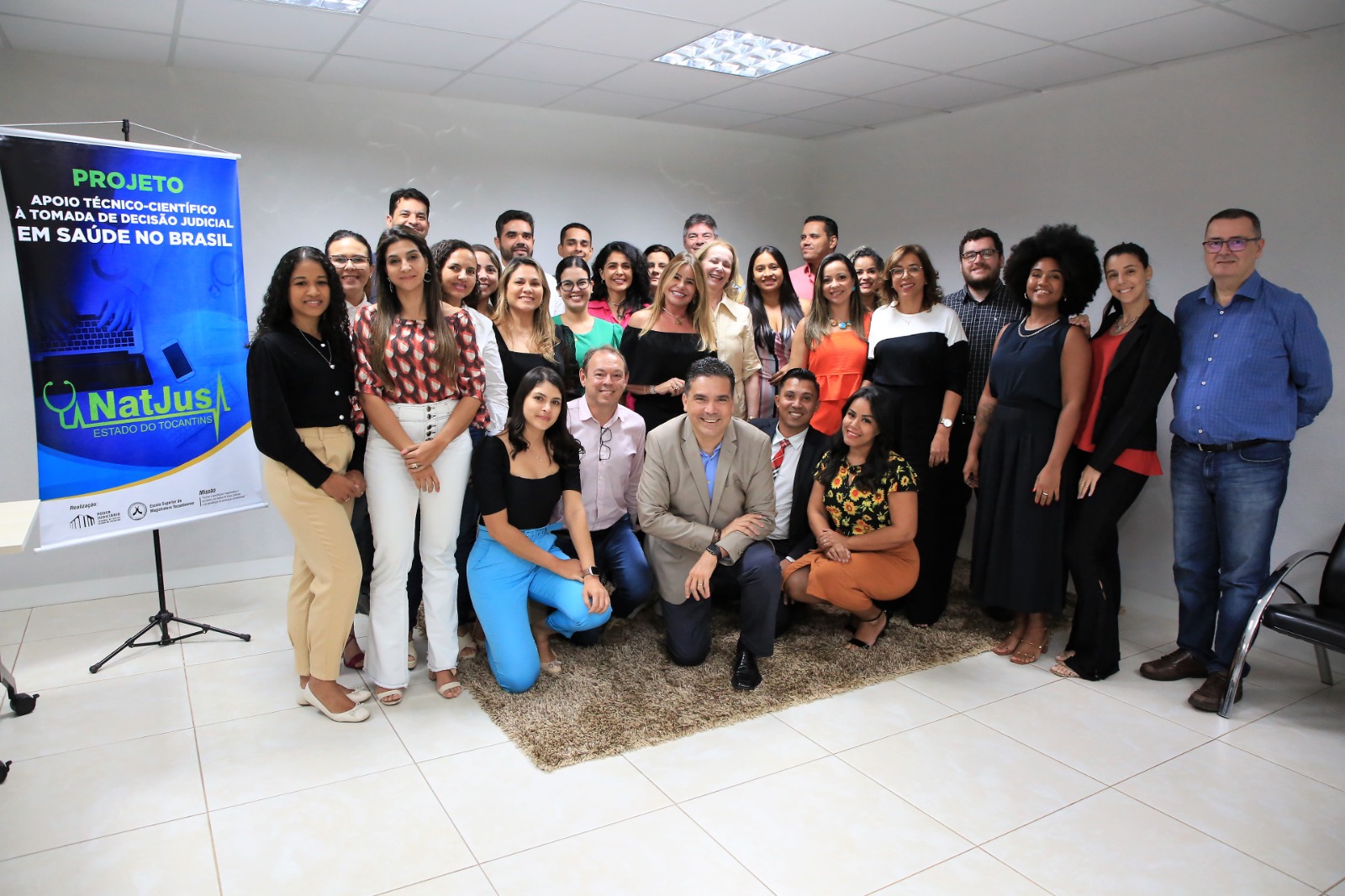
The Superior School of the Judges of the State of Tocantins (ESMAT) was the stage, on Thursday (May 25th), of an outstanding event in the legal and health fields. Tocantins had the honor of being chosen by the National Council of Justice (CNJ) to host the Regional Meeting of the Technical Support Centers of the Judiciary (NatJus) of the Midwest of Brazil.
The event brought together representatives of the NatJus of the States of Goiás, Mato Grosso and Mato Grosso do Sul, and included the participation of representatives of the renowned Sírio Libanês Hospital as lecturers at the Regional Workshop 2 of the Project on "Technical and Scientific Support for Judicial Decision Making in Health in Brazil".
The general coordinator of NatJus-TO, Judge Milene de Carvalho Henrique, expressed her satisfaction that the State of Tocantins had been chosen to host the Meeting. For the Judge, the event represents a milestone for our State, strengthening its position as a protagonist in the search for updated knowledge and effective practices in the field of health. "The partnership between the National Council of Justice and the Ministry of Health, through PROADI-SUS, seeks to qualify the technical notes issued by NatJus at the national level, providing magistrates with fundamental information for decision making based on scientific evidence and up-to-date knowledge of public health policies," she said.
Professor Rafael Leite Pacheco, representing the Sírio Libanês Hospital, highlighted the importance of the partnership between the institution and the National Council of Justice. "We are here to perform one of the deliverables of the project, which are the regional workshops in conjunction with the NatJus. We believe that the NatJus play a fundamental role in the judicialization of health, and we have come to share experiences, improve processes, and exchange ideas on how to improve the response to judicial demands, making the whole process more efficient," he said.
Professor and researcher Roberta Borges Silva emphasized the purpose of the workshop, stressing the importance of getting to know the members of the NatJus and understanding their methodological needs. "The idea of this workshop today is that we can understand the needs that the members of the NatJus have in terms of methodological aspects, to give this support to the Judges in their decision making, and our activities will propose filling these gaps, so that they can have greater institutional capacity and autonomy, and promote the translation of this scientific knowledge to the Judges," she said.
The technical coordinator for Medicines at State Natjus, Doctor Elizangela Braga Andrade, highlighted the main goal of the workshop, which is to train NatJus technicians in the search for scientific evidence and the translation of this knowledge into court cases. For her, "the search for scientific evidence is essential when there are no clear treatment options. The workshop aims to strengthen the ability of the technicians to prepare technical notes based on scientific evidence found in databases, which provide information on efficacy, safety, and application of health technologies, ranging from medications to surgical procedures, orthoses, and prostheses. In the context of judicialization, it is crucial to verify whether the requested medication is effective and safe, in addition to presenting to the Judges the available alternatives at SUS that may meet the needs of the applicants", she explained.




